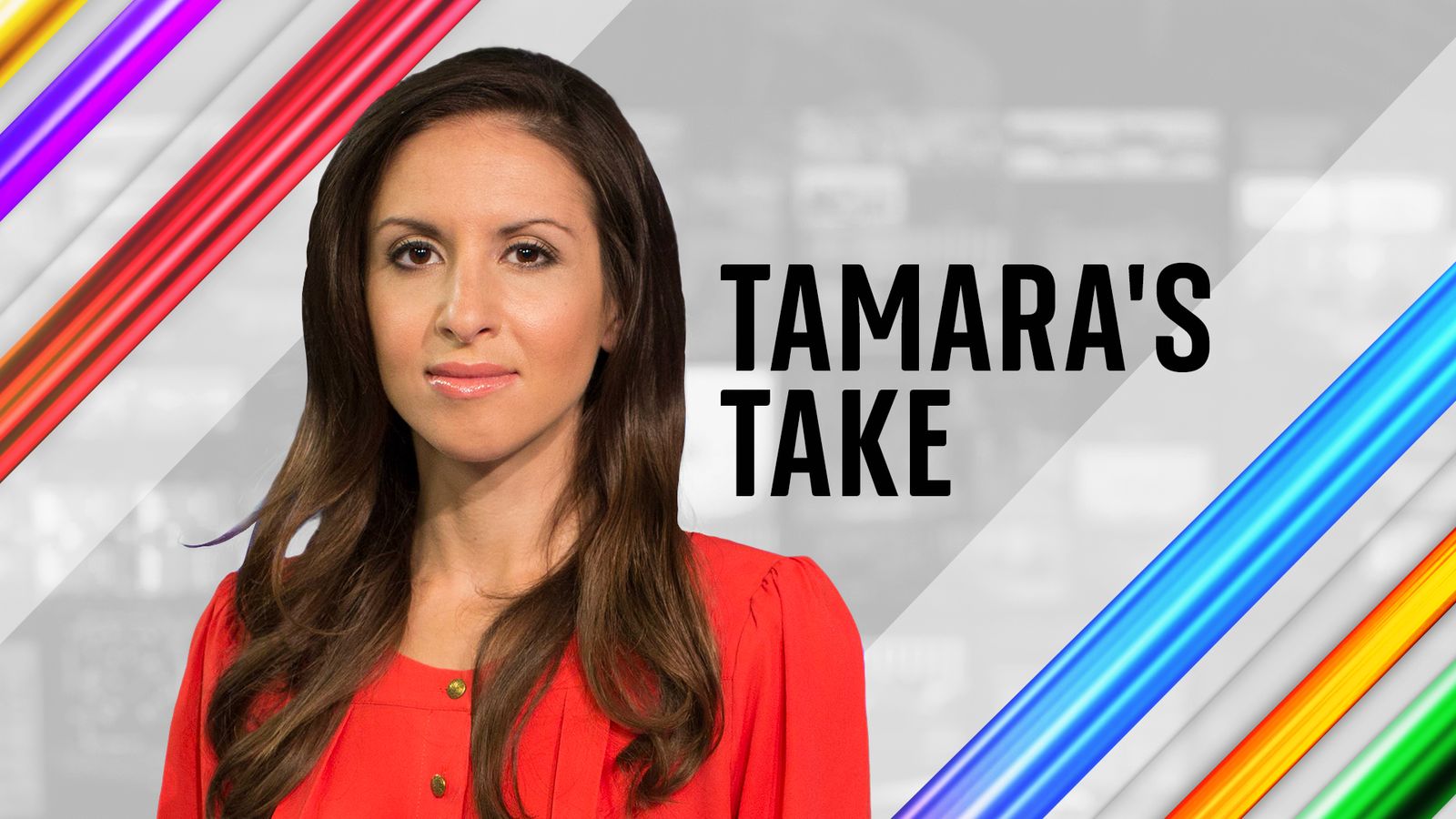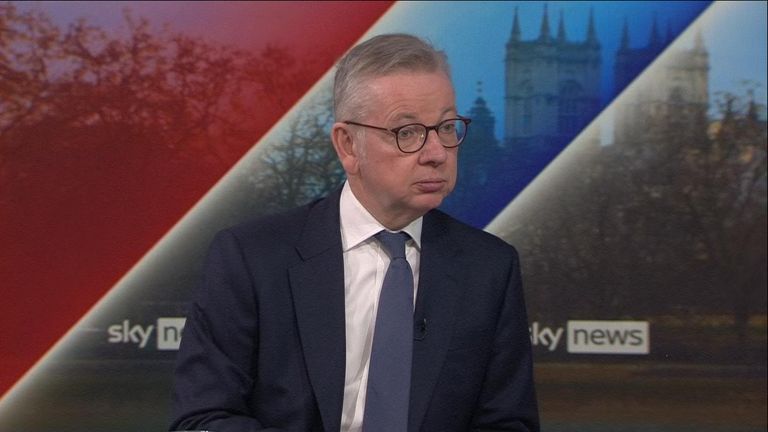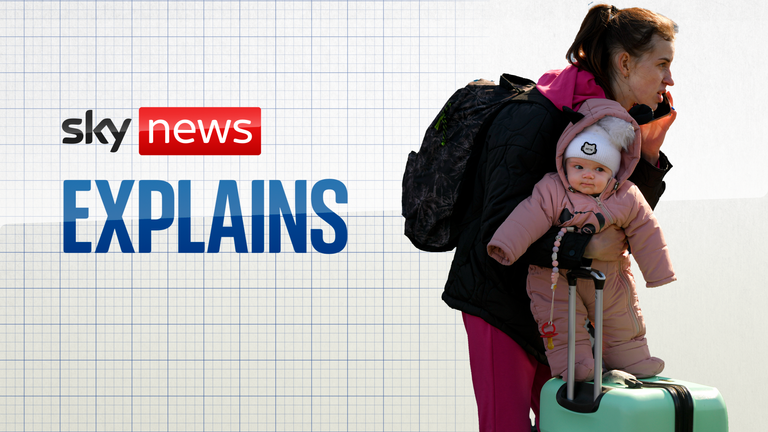The government-backed refugee scheme being unveiled today will build on lessons learned from the Afghanistan evacuation last summer, according to government sources.
15,000 Afghans were taken to the UK, but many are still stuck in hotels and unable to work or integrate.
The hope in Whitehall is that the approach for Ukrainian refugees will go some way to preventing a recurrence of such issues.
A government source said: “We took more people from Afghanistan than any other European country and we’re proud of that but we have to learn from it as well – a lot of people are stuck in quite miserable conditions in hotels because we don’t have accommodation for them. The new refugees minister will be focused on both issues.”
Russia ‘asks China for military assistance’ – live updates
The humanitarian sponsorship visa scheme will allow families in England to host a Ukrainian refugee or family in their home, in an attempt to make the best of the generosity of people seeing the horrors unfold there and wanting to help.
A website will launch today – shortly after Michael Gove announces the scheme in Parliament – allowing people to register their interest in having someone in their spare room or empty property.
Applications can be made from Friday and a minimum time commitment of six months will be required and a “thank you” payment of £350 a month will be paid, once security checks have been completed and the host family – especially if they are hosting children – have had a visit.
21 children arrive in UK for life-saving cancer treatment
Something on this scale has never been done by government before, and they are to some extent feeling their way. Someone applying to host a refugee will need to name and have passport or ID card details for all individuals.
The government does not, at this stage, act as matchmaker. Officials say this is best left to the experts and that there are already efforts in train for organisations in the UK working with charities in Poland and other neighbouring countries to help match up British families with those in the region.
The Refugee Council and others say the fact it is only open to named people means that only those with a connection or a friend of a friend in Britain will be able to benefit.
Those working on the scheme say the aim is that it is much broader, but that it makes sense, especially when it comes to living in someone’s home, for people to be matched by charities based on their criteria – for example LGBT charities, charities working with children or orphans can try to match their charges with people who can offer the right support.
Those coming on this housing scheme will not have refugee status, which can take a long time to apply for and precludes working at least at the start. They will have the right to work, and access to universal credit (without the housing element) and all public services.
As a government-backed scheme, if a host cannot fulfil their obligation to a matched family, they will be found somewhere else.
Downing Street is also in talks with big retailers about offering jobs to Ukrainian refugees; and a much bigger part of the sponsorship scheme in which churches, synagogues or other organisations who have accommodation such as care homes can offer it up to larger numbers of people.


